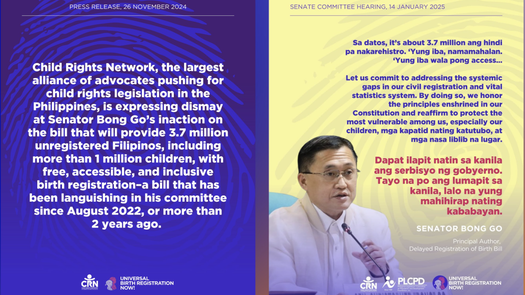July 29, 2025
Cambodia has taken a huge step forward in ensuring that every birth and death in the country is effectively registered, along with other vital life events. On June 21, 2023, the Government adopted a new law on Civil Registration, Vital Statistics, and Identity (CRVSID) that will come into effect in 12 months. This comprehensive legal framework establishes an integrated system which links the civil registration of births and death, along with individuals’ identification and residence, to a newly created population register. The law also removes obstacles and disincentives from the registration process, establishes a universal right to an identity (ID) card for all citizens and includes important privacy protections for personal data.

Globally, two-thirds (38 million) of the 56 million deaths that occur annually are still unreported. Nearly half of all children worldwide are unregistered, with numerous barriers preventing births and deaths from being recorded.
To establish effective health systems that can meet a population’s needs and can respond to urgent health problems, nations need to know how many people are born and die each year, as well as the main causes of those deaths. By keeping track of every birth and death within a population, effective civil registration systems enable the production of reliable vital statistics that is essential for public health policy-making and planning.
Comprehensive and robust legal frameworks lay the foundation for universal, continuous and permanent CRVSID systems that in turn lead to the realization of human rights by providing legal identity, protecting the rights to health, education, nationality, property., and enjoyment of social entitlements and benefits. Until today, Cambodia had a series of ad hoc sub-decrees that only addressed elements of a CRVSID system. The CRVSID system lacked both national legislation as well as a population register (a computerized system with up-to-date information for each individual residing in the country).
Under the new law, civil registration is guaranteed to all individuals residing in Cambodia, for every vital event that occurs within the country, regardless of the person’s nationality, citizenship, ethnicity or geographical location. The law provides for a decentralized system with district and provincial level civil registrars, which means registration will be locally accessible for everyone. To further incentivize registration of vital events, the process for late and delayed registration has been simplified and registration fees have been removed.
The Global Health Advocacy Incubator has been working with the Cambodia General Department of Identification, the Department of Justice, and the Ministry of Health to provide technical support to the Cambodian government stakeholders. In May 2018, we began to provide technical assistance on this landmark legislation and continued through the consultation, National Steering Committee approval, and finally, the adoption by Parliament. This has been done through workshops, stakeholder engagement and drafting assistance to ensure that the law is comprehensive and incorporates global best practices for CRVSID. This project is supported by the Bloomberg Philanthropies’ Data for Health Initiative which supports over 25 countries around the world to strengthen CRVS laws and public health data and its use for policy making.



